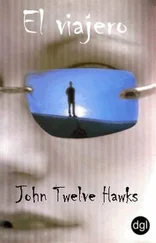“Where are you?” a person asked.
“Are you in danger?” asked another. “Can we help you?”
Susan switched off her notebook computer and immediately left the café. On the way home, she obeyed the speed limit and waited a few extra seconds when the stop light turned green.
***
She placed a frozen dinner in the microwave oven and stepped out into the back yard to find Charlie. The dog had disappeared and she could see that the door to the garage was half open. That was unusual. On two occasions, the gardener had forgotten to lock up, but he didn’t come on Wednesday. Cautious, she stood in the doorway, found the switch and flicked it on. Nothing happened. And then she heard the dog whimpering in the darkness.
“Charlie?”
A man stepped from the shadows and grabbed her arms. She fought back, kicking and screaming. Suddenly, a light came on and she saw a second man standing on a kitchen chair. Someone had loosened the light bulb and now the man was screwing it back into the fixture. Susan stopped fighting and gazed up at the person holding her arms. It was Robert-no, everyone called him Rob-a big man in his thirties who worked as a guard in the administration building.
“What are doing?” she asked.
“Don’t kick me,” Rob told her. He looked like a little boy with hurt feelings.
The man standing on the chair had a military haircut and slender body. When he stepped down and approached her, she saw his face. It was Nathan Boone-Head of Security for the Evergreen Foundation.
“Don’t worry, Susan.” Boone had a calm, measured voice. “Your dog hasn’t been hurt. But we do need to talk to you.”
Rob guided her over to the center of the garage and made her sit down on the chair. Charlie had been leashed and tied to a support beam. The dog watched as Rob knelt down and placed plastic restraints around Susan’s ankles and wrists.
Boone took a biscuit out of his nylon jacket and fed it to Charlie. The dog wagged his tail and waited for more. “Dogs are like humans,” Boone said. “They value small rewards and clear lines of authority.”
He untied the leash and offered it to Rob. “Take the dog outside while I talk to Susan.”
“Yes, sir.”
Boone’s shadow touched her and then glided away as he paced around the garage. “Do you know who I am?”
“Of course, Mr. Boone.”
“And you know why we’re here.”
“No, I-”
“That was not a question, Susan. We’re here because you were disloyal and because you tried to contact our enemies.”
“Yes.” Susan whispered. It felt like the only true thing she had ever said in her life.
“Good. Thank you. That saves a lot of time.” Boone glanced to the right when Rob returned to the garage.
“For the most part, our employees have accepted our system, but a few people have ignored their commitments and chosen to be disloyal. I want to understand this phenomenon, Susan. I really do. I’ve studied your Norm-All data closely and found nothing unusual in your profile. Your personal equation was well within the parameter of acceptable behavior. So what compelled you to violate the rules and engage in such perversity? You have deliberately turned away from a system that protects what is good and right.”
Silence. The plastic restraints were so tight that Susan’s ankles were beginning to hurt.
“I’m just-just stubborn. That’s all.”
“Stubborn?” Boone shook his head as if that wasn’t an adequate answer.
“Yes, I’ve always had a core inside me that’s very independent. I want to make my own decisions without people watching me.”
“We’re watching you for your own good and the good of society.”
“People always say things like that when they’re about to do something really selfish and bad.”
“You violated our rules, Susan. Your own actions have caused the appropriate punishment.”
Boone reached up and grabbed a rope that had been tied to the rafters. He dropped a loop around her neck and tightened it.
“A lonely woman gives into her depression.” Boone murmured and motioned to Rob. It felt as if the big man were embracing her like a lover as he picked Susan up and made her stand on the chair.
I can’t die now, she thought. It’s not fair . She had all these thoughts that were never expressed, all these dreams that had never marched off into the world. “There’s movement called the Resistance,” she said. “People are waking up and seeing what’s going on.”
Rob glanced over his shoulder and Boone nodded slightly. Yes. He knew all about the Resistance.
“We’re going to fight you and we’re not going back down! Because people want the freedom to chose their own-”
Rob kicked away the chair and Susan swung back and forth. Her feet were a few inches or so above the floor. Boone stood beside her like a concerned friend, checking the noose and the rope. When he was sure that everything was secure he cut off the restraints with a knife, picked up the bright yellow fragments and followed Rob out the door.
She was still alive, grabbing at the robe as it cut into her windpipe. And then thoughts flooded through her brain in one final wave of consciousness. Her mother lying in the hospital bed. A Valentine box in grade school. The sunset on a beach in Jamaica. And where was Charlie? Who would take care of Charlie? Was she already dead? Or had she finally been set free?
No one was watching her anymore.
Early in the evening, a North Sea storm swept through the German countryside and drenched Berlin. Raindrops rattled on the glass panes of the greenhouse and the orangery in Babelsberg Park. The willow trees around the lake swayed back and forth like underwater plants while a flock of ducks huddled together on their little island. In the streets around Potsdamer Platz, the traffic was slow and halting, the cream-colored taxi cabs honking at each other in the clogged intersections while delivery trucks grumbled like large shambling creatures.
Windshields were streaked with water and it was difficult to see the faces of the drivers. The sidewalks in the Mitte District were empty and it seemed as if much of Berlin’s population had disappeared. But the surveillance cameras remained like mute guardians of the city. They tracked a young woman holding a newspaper over her head as she darted from an office doorway to a waiting car. They followed a restaurant delivery man as he pedaled a bicycle up the street, a life revealed in a series of grainy black-and-white images: a desperate face with wet hair plastered to the forehead, legs moving frantically while a cheap plastic poncho flapped in the wind.
On Fredrichstrasse, a license plate scanner mounted on a building photographed a black Mercedes stopped at a traffic light. The plate number was recorded and automatically checked against a central database as Michael Corrigan and Mrs. Brewster sat in the back seat and waited for the light to turn green. Mrs. Brewster had taken a tube of lipstick out of her purse and was studying her face in a compact mirror. This was behavior quite out of character for the current head of the Brethren’s executive board; unless there was a party or some other kind of special event, Mrs. Brewster paid minimal attention to her personal appearance. She was a tweed-and-practical-shoes sort of woman whose only gesture to vanity was the artificial color of her chestnut-brown hair.
“God, I look tired,” she announced. “It’s going to take a effort to get through dinner with Hazelton and his friends.”
“If you want, I’ll do all the talking.”
“That would be wonderful, Michael. But it’s not necessary. There’s been a change of plans.”
Читать дальше












